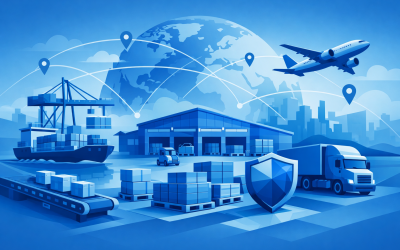This is part two in a three-part series. You can read part one here and part three here.
In part one of this three-part series, we discussed what you should be looking for long before you launch your eCommerce business. This installment is all about what you’re going to need to accomplish your online storefront goals. From software to partnerships, we’ve got it covered in this post.
The Beginning of an eCommerce Shop
The very first thing you’re going to need is a place to put your eCommerce store. Whether you choose to self-host or hire a web host should be based on your level of experience with computer hardware and software, as well as your experience running an eCommerce business.
It’s important that you remember that eCommerce isn’t a place where you can go it alone — and often paying a few dollars more for hosting will get you a lot more value than you might imagine. For example, services like Shopify also provide you with detailed reporting tools that will prove useful later, as well as tutorials that’ll come in handy right away.
Make certain that whatever eCommerce host you choose can fully support your long-term goals. Moving your online shop after it’s established is a lot harder than it sounds and the potential disruption to business can be dramatic. Better to choose the right host now than to regret it later.
Name Recognition
With your host chosen, you can focus on other really important stuff like finding a good URL, establishing social media accounts for your business and setting up custom email addresses. You’re going to want people to be able to find you by name. You’re also going to need a plan for driving traffic to those places. Whether that means working with an SEO expert to properly leverage your niche blog or using a social media specialist to position your business just right on Facebook and Twitter, now is the time to make some allies.
Partners like a third-party logistics company are vital at this point — you’ll need somewhere to store any merchandise you keep in stock as well as a team to help handle returns. If you haven’t given any thought to reverse logistics, it’s time to get a plan together. One of the easiest ways to destroy your relationship with your customers is to make a mess out of the returns process.
Shipping transparency is another place where you can win lots of die hard fans. With a full service logistics company on your team, you can integrate a customer web portal into your eCommerce platform that will allow your shoppers to see exactly where their orders are in the fulfillment process.
There’s plenty to consider as you get started with an eCommerce business, but if you start off with the ideal web hosts and eCommerce software and have the right partners in place, your business will mature quickly. In part three of this three-part series, we’ll go over what’s most important to keep in mind for an eCommerce business.









